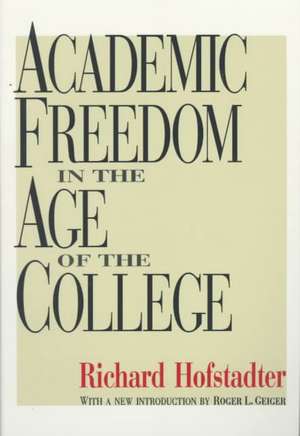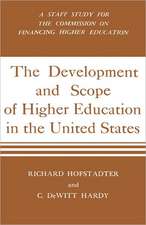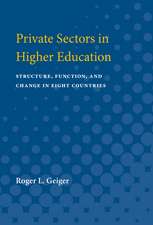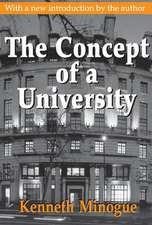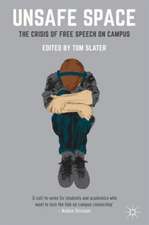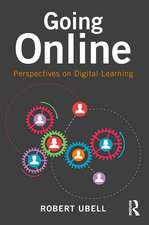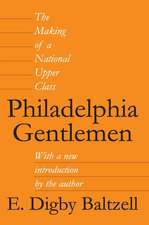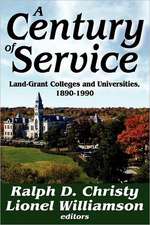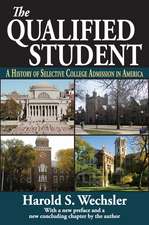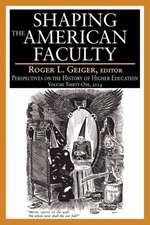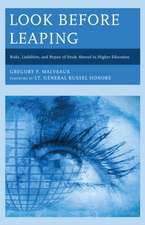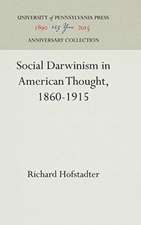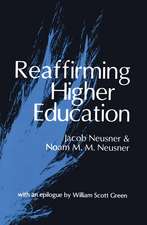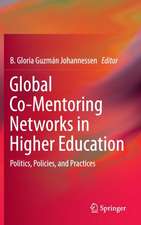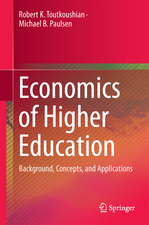Academic Freedom in the Age of the College: Foundations of Higher Education
Autor Richard Hofstadteren Limba Engleză Paperback – 31 oct 1995
Preț: 404.58 lei
Nou
Puncte Express: 607
Preț estimativ în valută:
77.42€ • 82.78$ • 64.55£
77.42€ • 82.78$ • 64.55£
Carte tipărită la comandă
Livrare economică 17 aprilie-01 mai
Preluare comenzi: 021 569.72.76
Specificații
ISBN-13: 9781560008606
ISBN-10: 1560008601
Pagini: 308
Dimensiuni: 152 x 229 x 15 mm
Greutate: 0.5 kg
Ediția:1
Editura: Taylor & Francis
Colecția Routledge
Seria Foundations of Higher Education
Locul publicării:Oxford, United Kingdom
ISBN-10: 1560008601
Pagini: 308
Dimensiuni: 152 x 229 x 15 mm
Greutate: 0.5 kg
Ediția:1
Editura: Taylor & Francis
Colecția Routledge
Seria Foundations of Higher Education
Locul publicării:Oxford, United Kingdom
Cuprins
I: The European Heritage; II: Harvard College From Dunster to Leverett; III: The Colonial Colleges; IV: Religion, Reason, and Revolution; V: The Old-Time College 1800–1860
Descriere
When this classic volume first appeared, academic freedom was a crucially important issue. It is equally so today. Hofstadter approaches the topic historically, showing how events from various historical epochs expose the degree of freedom in academic institutions. The volume exemplifies Richard Hofstader's qualities as a historian as well as his characteristic narrative ability. Hofstadter first describes the medieval university and how its political independence evolved from its status as a corporate body, establishing a precedent for intellectual freedom that has been a measuring rod ever since. He shows how all intellectual discourse became polarized with the onset of the Reformation. The gradual spread of the Moderate Enlightenment in the colonies led to a major advance for intellectual freedom. But with the beginning of the nineteenth century the rise of denominationalism in both new and established colleges reversed the progress, and the secularization of learning became engulfed by a tidal wave of intensifying piety. Roger L. Geiger's extensive new introduction evaluates Hofstadter's career as a historian and political theorist, his interest in academic freedom, and the continuing significance of Academic Freedom in the Age of the College. While most works about higher education treat the subject only as an agent of social economic mobility, Academic Freedom in the Age of the College is an enduring counterweight to such histories as it examines a more pressing issue: the fact that colleges and universities, at their best, should foster ideas at the frontiers of knowledge and understanding. This classic text will be invaluable to educators, university administrators, sociologist, and historians.
